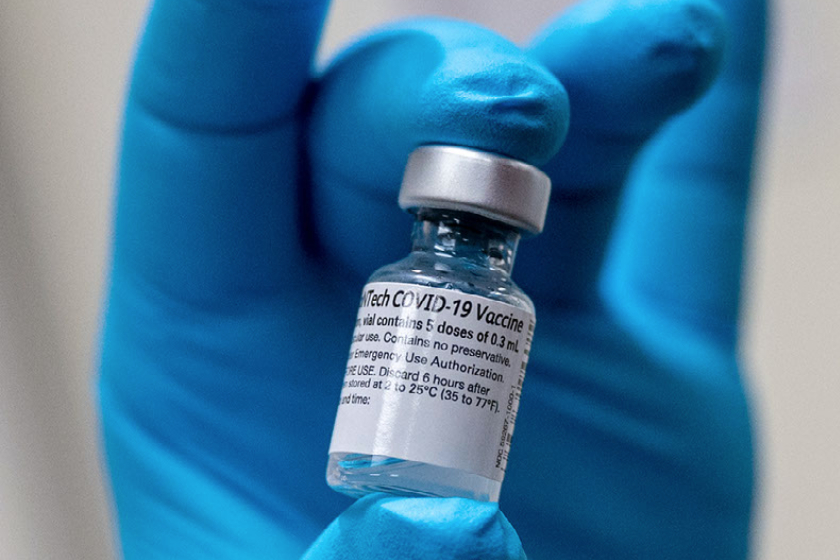While public health and infectious disease experts have discussed strategies to enhance adherence, including the potential use of financial incentives, an examination of the scientific evidence on incentivizing vaccine adherence has not been discussed.
A new Commentary in Preventive Medicine by Vermont Center on Behavior and Health Director Stephen Higgins, Ph.D., and colleagues addresses that gap.

A Pfizer vaccine vial (stock photo).
As the United States struggles to control record-breaking increases in COVID-19 infections and hospitalizations, the roll-out of two approved vaccines offers tremendous hope for saving lives and curbing the pandemic. To achieve success, however, experts estimate that at least 70 to 90 percent of the population must be inoculated to achieve herd immunity, but how can we ensure folks will voluntarily receive a vaccine?
Both vaccines require two injections. Pfizer-BioNTech’s second dose must be given 21 days after the first and Moderna’s second dose must be administered 28 days after the first. While public health and infectious disease experts have discussed strategies to enhance adherence, including the potential use of financial incentives, an examination of the scientific evidence on incentivizing vaccine adherence has not been discussed.
A new Commentary in Preventive Medicine by a team led by Stephen Higgins, Ph.D., director of the Vermont Center on Behavior and Health (VCBH) and professor of psychiatry at the University of Vermont’s (UVM) Larner College of Medicine, addresses that gap.
In their paper, Higgins and his VCBH research colleagues Elias Klemperer, Ph.D., and Sulamunn Coleman, Ph.D., describe results from several controlled trials that support the efficacy of incentivizing vaccine adherence. A strong example from their literature review focused on the impact of using incentive strategies to increase hepatitis B virus (HBV) vaccine adherence among injection drug users (IDUs). Individuals dependent on illicit drugs such as cocaine and heroin often face barriers ranging from co-occurring medical conditions to socioeconomic instability, which can make adhering to preventive medical regimens highly challenging. The HBV vaccine entails a three-dose regimen (typically at 0, 1, and 6 months) which has created adherence challenges among IDUs.
Their systemic literature reviews found strong support for the use of incentives, including a 2019 meta-analysis of the literature showing that modest financial incentives resulted in a 7-fold increase in adherence compared to no incentives.
Higgins and his coauthors conclude “that financial incentives could be helpful in promoting the high levels of adherence to COVID-19 vaccines that experts project will be necessary for herd immunity.”
This letter received support in part from a Centers of Biomedical Research Excellence Award P20GM103644 from the National Institute of General Medical Sciences, and Institutional Training Grant Award T32DA07242 from the National Institute on Drug Abuse.